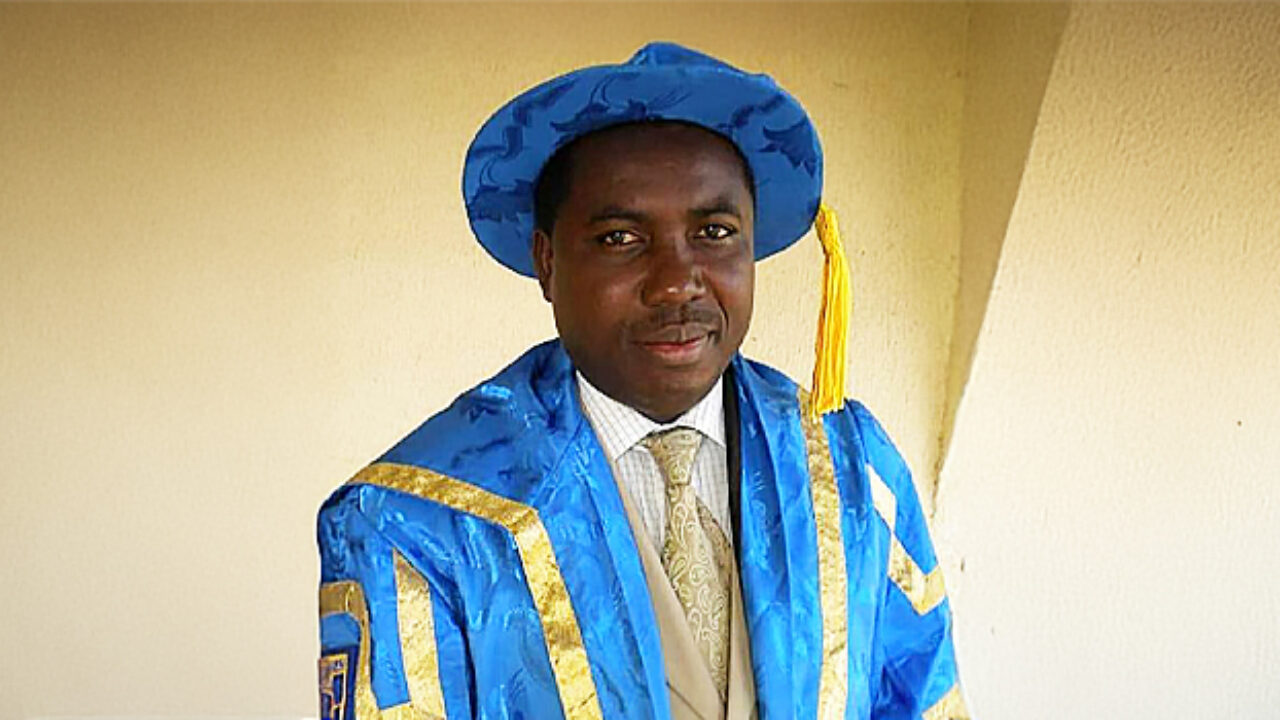Olusegun Adeniyi
In 1979, the outgoing military administration of General Olusegun Obasanjo established the Nigerian National Merit Award (NNMA) to identify our country men and women (whether at home or in the Diaspora) who have made outstanding contributions to knowledge and creativity and grant them special recognition. The award is categorised under four fields of human endeavour: Science, Medicine, Engineering/Technology, and Humanities—including arts and culture. After a rigorous selection process, worthy candidates are awarded the Nigerian National Order of Merit (NNOM) with a certificate and cash prize by the President on the first Thursday in the month of December—although the cash prize has dwindled in value over the years.
From inception till date (46 years), the NNMA Governing Board has only conferred the prestigious NNOM award on a total of 79 Nigerians to demonstrate how exclusive it is. Past awardees include Professors Chinua Achebe, Idris Mohammed, Anya O. Anya, Akin Mabogunge, Umaru Balarabe, Niyi Osundare, Jacob Olupona, Barth Nnaji, Femi Osofisan, J.P. Clark, Ben Nwabueze, J.F. Ade-Ajayi as well as the late Mrs Ladi Kwali, Mr Bruce Onobrakpeya, and a few others who distinguished themselves in their chosen vocations outside the Ivory Towers. Interestingly, even though Nobel Laureate, Prof Wole Soyinka, delivered the first NNMA Winners’ lecture at the University of Lagos on 3 May 2012 titled, ‘Monumentalism and the Renaissance Dream: The Bane of Power Aesthetics’ and is recognised as an NNOM winner, there seems not to be a proper record of the year he was awarded.
Following the enactment of the NNMA Act in 1992 by the military administration of General Ibrahim Babangida, the cash prize was reviewed to N5 million for each recipient. With the exchange rate in 1992 standing at N9.91 to a dollar, that put the amount received by each awardee for that year at $500,000. But with a progressive decline in the value of the Naira, President Goodluck Jonathan jerked up the prize money for each recipient to N10 million in 2011. Since the exchange rate at that period was N148 to a dollar, an awardee still received an equivalent of about $68,000. Meanwhile, funds for the cash prize and other activities, including calls for nomination/application advertisement, quarterly award winner lectures, payment for internal and external assessors, an annual forum of NNOM laureates, etc. are included in the NNMA annual budget.
At the investiture dinner in honour of two NNOM Laureates in December 2017, then Vice President Yemi Osinbajo spoke on how the fame and glory of nations largely rely on the hard work, creativity and service of their best talents. “Consequently, any society that favours exigencies of any kind over merit has chosen to function at its sub-optimal level and greatness must, by the force of principle, elude it,” said Osinbajo. “High attainment, whether it be for individuals or nations, is a function of the priority given to merit.”
Unfortunately, the government Osinbajo served displayed a befuddling but not surprising disdain for merit by starving the NNMA of funds. But the current administration seems to have carried this contempt to a new level. In the 2024 budget, the NNMA received an allocation of N16 million (capital). It is from this ridiculous amount that the NNMA is expected to organize all its programmes and pay the prize money of N10 million that is now worth less than $7,000. To compound the challenge, the federal government is planning to merge the NNMA with the National Honours Awards. A bill to that effect is already before the National Assembly.
In a piece I wrote in 2012 titled ‘National Honours as Chieftaincy Titles’, I recalled what happened in 1996 when then Head of State, the late General Sani Abacha, was said to have been handed a list of nominees for National Honours for that year, for the approval of the Provisional Ruling Council (PRC) which he chaired. After going through the names, Abacha reportedly looked straight at the official who gave him the paper and remarked: “These are the Nigerians you think merit National Honours? More than half of the people on this list are crooks!” That year, no Nigerian was bestowed a national honour, and I really cannot recall if Abacha ever conferred any until he died two years later.
Therefore, merging the NNMA with National Honours is to subvert the entire idea. The NNMA is premised on the notion that sustained recognition of, and reward for, excellence, signals a nation’s appreciation for meritocracy, intellectual rigour and creativity. This is why the NNOM is the highest academic and intellectual award in the country, once likened to the Nobel Prize by President Jonathan. We know that the national honours award is secured by lobbying, cronyism and other unwholesome practices, while the NNOM comes with a rigorous selection process involving applications discreetly evaluated by eminent academic peers of integrity. How can the federal government put the two awards in the same pot?
I understand that the NNOM laureates (renowned professors who are mostly in their eighties and nineties) held a zoom meeting last week to lament how a noble idea to promote scholarship is being gradually bastardised in Nigeria. They have my sympathy. I just hope that President Bola Tinubu will not allow the NNOM to join the long list of Nigerian initiatives that have suffered egregious institutional degradation.
The Uromi lynching of 16 hunters
When the sacred duty of protecting lives and property is outsourced to unregulated and untrained security outfits comprised of personnel with questionable backgrounds, avoidable calamities are never far away. That explains the tragic fate that befell 16 hunters last Thursday at Uromi, Esan Northeast Local Government Area of Edo State. Travelling to their home state of Kano from Port Harcourt, Rivers State, for the end of Ramadan festivities, the hunters were ambushed and gruesomely murdered by a local vigilante group. In a statement by its President, Archbishop Daniel Okoh, the Christian Association of Nigeria (CAN) spoke for many critical stakeholders in demanding justice for the slain hunters, arguing that their extrajudicial killing in “such a senseless and brutal manner…is a chilling reminder of the dangers of lawlessness.”
While I commiserate with the families of the deceased hunters, there must be a thorough investigation of not just the actors, but also those who could have averted the tragedy and dropped the ball. We should also not discount the incessant killings and kidnappings in Edo and other states that fuel these irregular security measures. The bigger tragedy, of course, is that the hunters wereprofiled as terrorists and kidnappers because of the language they spoke. In Nigeria, once you put a negative label on people, what follows is primordial hate mongering and its destructive grip. As I argued in one of my ‘Platform Nigeria’ presentations, while the social and economic bonds that unite us as a people may be strong, the rights of citizenship remain shackled by boundaries of state of origin, ethnicity and religion.
However, we must commend the traditional institution in the North, particularly the Emir of Kano, Muhammadu Sanusi II, for the interventions to prevent reprisal actions that could lead to further bloodshed of innocent people across the country. Authorities in both Edo and Kano States, led by Governors Monday Okpebholo and Abba Yusuf respectively, have also demonstrated commendable leadership. Okpebholo visited Kano last weekend and met with families of the deceased hunters, promising to pay compensation. I am also impressed by the statement of Uromi community elders. In taking collective responsibility for what it described as an abomination without excuse, the Esan Descendants Assembly (EDA) pleaded through its chairman, Prof. G.R.A. Okogun and General Secretary, Mr Saint Moses Eromosele: “To the families of the slain, to the communities from which they came, to the states that raised them, and to the nation whose conscience has been wounded, we offer our deepest sorrow. We do not apologise from politeness, but from the pain of brotherhood. No man deserves to be judged by fire. No mother should receive her child in ashes.”
Meanwhile, the bigger challenge rests with the federal government. While the worsening security situation in the country has led to the proliferation of vigilante groups, authorities must also understand that these outfits are susceptible to the kind of jungle justice visited on the 16 hunters. This should therefore be another teachable moment. In an April 2022 report titled, ‘Managing Vigilantism in Nigeria: A Near-term Necessity’, the International Crisis Group (ICG) warned that while “Vigilantes have become so important to protecting the Nigerian public that for now the country has little choice but to rely on them… the emergence of ethnically exclusive groups threatens to stir up communal tensions.” Over the long term, according to the global NGO committed to preventing, mitigating and resolving deadly conflict, “Nigerian authorities need to rebuild trust in their capacity to protect the public without vigilante assistance through comprehensive police reform.”
Beyond the challenge of insecurity, we must all be concerned about the collapse of the mores that bind us together as a society despite the right to life being a universal principle contained in section 33 of the 1999 Constitution (as amended). That collapse accounts for how the law of the jungle operates, as we saw when the vigilante group doused the hunters in petrol before setting them ablaze along with their truck while onlookers recorded and cheered.
In so many ways, as I have argued numerous times on this page, Nigerians reflect their government. If a society is not compassionate, it is futile to expect the government to be. If a society has degenerated to the level of every man for himself, then we delude ourselves to expect anything better from government. The net result is a collective descent into a Hobbesian jungle where life becomes nasty, brutish, and short.

























































